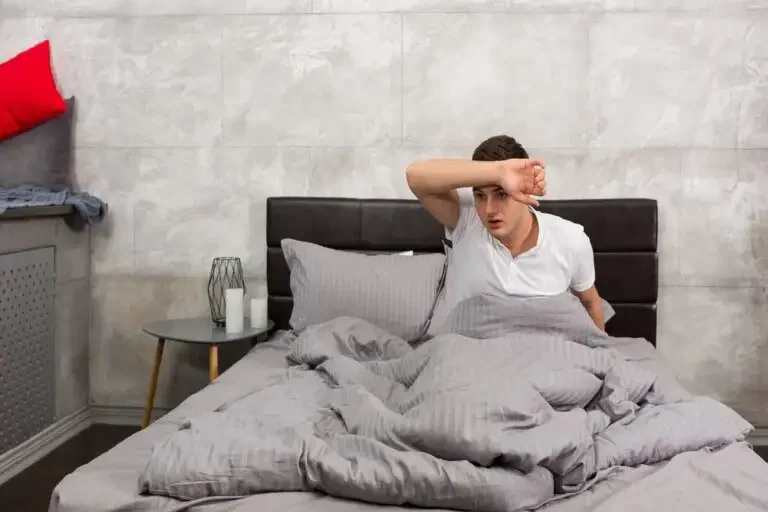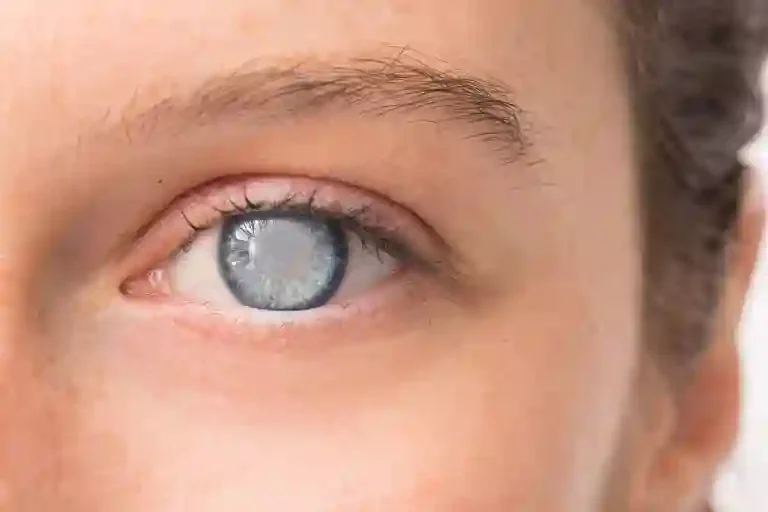While hot temperature and lack of ventilation may cause night sweating at times, if you experience it frequently, there may be some underlying causes behind it.
Do you often wake up all sweaty at night despite your air conditioning working fine and don’t really understand the reason behind it? While hot temperature and lack of ventilation may cause night sweating at times, if you experience it frequently, there may be some underlying causes behind it. Experts say being too stressed, drinking alcohol before bedtime, certain medications, diabetes, anxiety disorders, thyroid problems, or perimenopause could be some of the reasons why you are breaking out in a sweat at night.
Dr. Krishan Raj, says there could be many factors behind sweating during sleep and in most cases, it could be an indicator of an underlying medical condition.
“Though the most common factor associated is with diabetics (Diabetic neuropathy), those who take medications for hypoglycemia (low sugar) usually sweat due to the fact that the blood vessels expand to increase the blood flow and then contract,” says Dr. Krishan Raj.
Here are other factors according to Dr. Krishan Raj and Dr. Aniket Mule, Consultant Internal Medicine, Wockhardt Hospitals, Mira Road that could lead to sweating during sleep.
• Drinking alcohol before hitting the sack: You may end up sweating at night if you happen to drink alcohol in the evening.
“This is so because alcohol increases the temperature of the body which can lead to sweating. Alcohol will relax the airways, which can make breathing harder. Moreover, it also acts as a stimulant by increasing the heart rate. Both of these can increase your body temperature and induce sweating. So, avoid alcohol consumption before sleeping,” says Dr. Mule.
• Thyroid disorders: The thyroid gland assists in regulating several bodily functions including metabolism, thus a highly active thyroid gland, can make the body sensitive to heat causing night sweats, according to Dr. Krishan Raj.
• Being stressed: Are you stressed or anxious? Then, you need to know that an overactive mind revs up your brain and body which can make you sweat at night. Try to de-stress by reading a book, taking a warm shower, or listening to music, says Dr. Mule.
• Anxiety disorders: Anxiety and stress are the most common conditions that create a variety of physiological responses, majorly contributing to nighttime perspiration. Those with disorders like OCD, SAD, or PTSD are highly vulnerable to night sweats due to anxiety and vice versa, says Dr. Krishan Raj.
• Going through menopause: Perimenopausal women report having night sweats which are extremely common. Alcohol, spicy foods, caffeine, and smoking can trigger night-time sweating. So, avoid them at night, says Dr. Mule.
• Certain medications: Taking antidepressants, antiretrovirals, or hypertension drugs impacts the parts of one’s brain that tend to control the body temperature or sweat glands. These medications can be responsible for inducing sweat during nighttime. You can speak to the doctor and check for other options for these medications.
• Certain infections like TB or HIV: Night sweats have a strong linkage to a variety of infections including TB, HIV, or even blood disorders like leukemia. This is due to the fact that infections can create fever and overheating of the body, leading to night sweats, says Dr. Krishan Raj.
Dr. Aniket Mule
Consultant Internal Medicine
Wockhardt Hospitals, Mira Road
To book an appointment call: +918108101104












